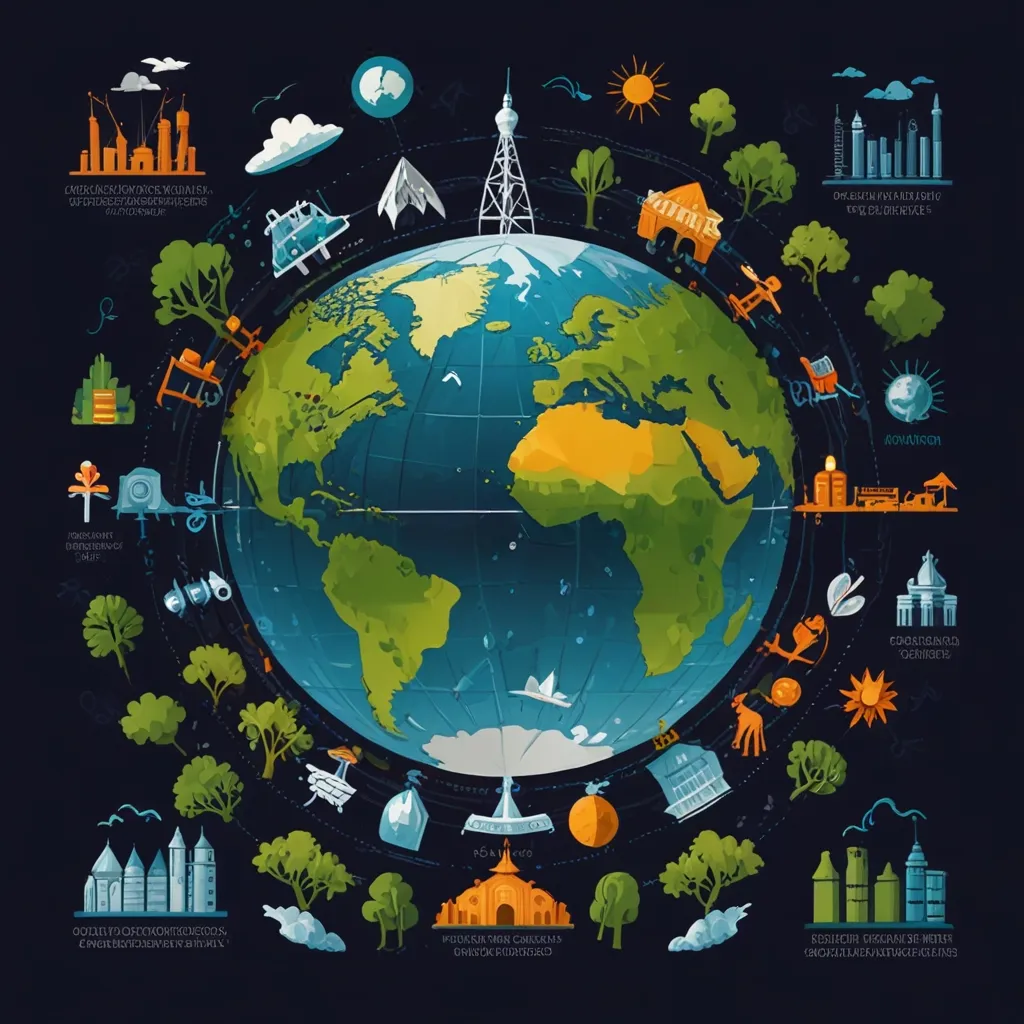Quantum Reality: How Our Thoughts Might Shape the Universe
Ever wondered if your thoughts could actually change the world around you? It’s not just a wild idea from a sci-fi movie. Quantum physics, that mind-bending branch of science, has been dropping some serious hints that our minds might have more power than we ever imagined.
Let’s dive into this crazy world where reality gets a bit… well, unreal. We’re talking about a place where particles can be in two places at once, where information travels faster than light, and where the simple act of looking at something can change its very nature.
First up, let’s chat about the observer effect. It’s like the universe’s way of being camera shy. In experiments, scientists have found that just watching electrons can change how they behave. It’s as if the electrons know they’re being watched and decide to put on a show. This isn’t just some quirky behavior limited to tiny particles. Even light gets in on the act. Depending on how we choose to observe it, light can act like a wave or a particle. It’s like it’s waiting for us to decide what it should be.
Now, if that’s not weird enough for you, buckle up for quantum entanglement. Imagine two particles that are so in sync, they’re like long-lost twins reunited. Whatever happens to one instantly affects the other, no matter how far apart they are. It’s like the universe’s own faster-than-light messaging system. Scientists have tested this over huge distances, and it still holds up. It’s as if these particles are saying, “Distance? What distance?”
But here’s where it gets really trippy. Some interpretations of quantum mechanics suggest that reality isn’t set in stone until we observe it. It’s like the universe is a big book of possibilities, and our consciousness is the reader that makes the story real. This idea has been bouncing around since the early days of quantum theory, and it’s still causing heated debates among physicists today.
Think about it: if observation can change the behavior of particles, and our brains are made up of particles, could our thoughts be influencing the world around us in ways we can’t even see? It’s a mind-bending possibility that blurs the line between the physical world and our inner experiences.
Now, before you start thinking you can use your mind to bend spoons or predict the lottery, let’s pump the brakes a bit. These quantum effects are usually only noticeable at the tiniest scales. But that doesn’t make them any less important. In fact, scientists are working on harnessing these bizarre quantum properties to create super-secure communication systems and incredibly powerful computers.
Quantum cryptography, for example, uses the principles of quantum mechanics to create unbreakable codes. It’s like having a secret handshake that changes every time you use it, and if anyone tries to eavesdrop, you’ll know right away. And quantum computers? They’re like regular computers on steroids, able to solve problems in minutes that would take normal computers thousands of years.
But let’s zoom out for a second and think about what all this means for our understanding of reality. If the act of observation can change the outcome of an experiment, what does that say about the nature of reality itself? Is the world really “out there,” or is it somehow dependent on our perception of it?
This is where things get philosophical. Some thinkers have suggested that consciousness itself might be a fundamental property of the universe, just like mass or charge. Others have proposed that there might be infinite parallel universes, each one representing a different possible outcome of every quantum event. Imagine a universe where you decided to have cereal instead of toast for breakfast this morning. According to this theory, it exists!
Of course, not everyone buys into these wild ideas. Many scientists argue that while quantum mechanics is undoubtedly strange, it doesn’t necessarily imply that our thoughts can directly influence reality. They point out that the observer effect doesn’t require a conscious observer – any interaction with the environment can cause the same effect.
But even if our thoughts aren’t literally shaping reality, the implications of quantum mechanics are still mind-blowing. It challenges our most basic assumptions about cause and effect, about the nature of time and space, and about the relationship between the observer and the observed.
And here’s a thought to really make your head spin: what if the universe itself is one big quantum system? Some physicists have proposed theories that try to apply quantum principles to gravity and cosmology. If these ideas pan out, it could revolutionize our understanding of the Big Bang, black holes, and the very fabric of spacetime itself.
The beauty of all this is that it reminds us how much we still have to learn about the universe. Every time we think we’ve got it figured out, nature throws us another curveball. It’s humbling, but also incredibly exciting.
So, the next time you’re lost in thought, remember that your mind might be doing more than just daydreaming. It might be participating in the grand quantum dance that underlies all of reality. We may not be able to control the universe with our thoughts, but we’re certainly not separate from it either.
In the end, whether or not our thoughts directly influence reality, one thing is clear: the act of thinking about these questions, of probing the nature of reality, is already changing our world. It’s pushing the boundaries of science, inspiring new technologies, and forcing us to reconsider our place in the cosmos.
And who knows? Maybe someday we’ll discover that the power of thought is even greater than we imagined. Until then, keep questioning, keep observing, and remember that in the quantum world, nothing is quite as it seems. Reality, it turns out, might be the biggest thought experiment of all.






